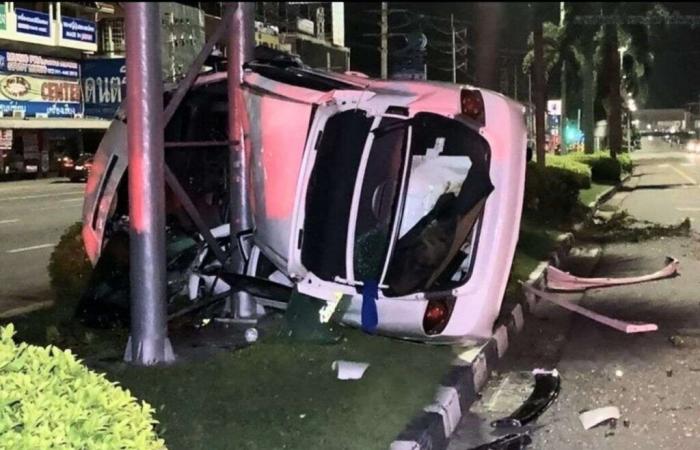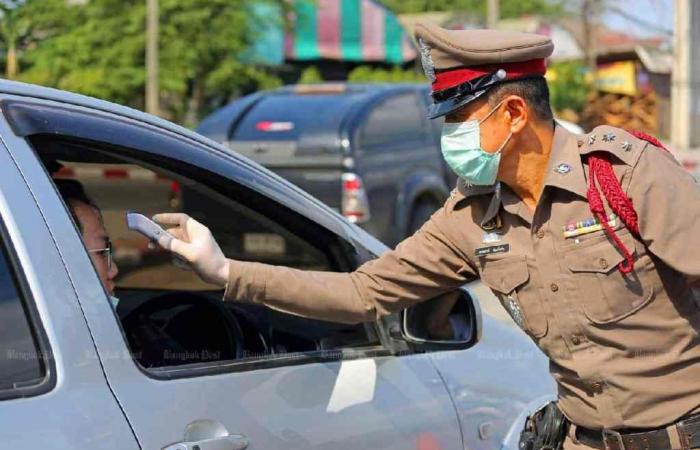Road accidents are wreaking havoc in Thailand, with 48 deaths recorded per day on average according to the Ministry of Public Health.
Road accident prevention advocates in Thailand have called for stricter enforcement of road safety laws.
The Thai Health Promotion Foundation (ThaiHealth) and its coalition advocated for improved road safety during an event at the Bangkok Arts and Culture Center (BACC) on Saturday, November 16.
This event was organized on the occasion of the World Road Traffic Victims' Remembrance Day 2024.
Surachai Liengboonlertchai, chairman of Parliament's road safety subcommittee, said the day gave people around the world an opportunity to pay tribute to those who lost their lives in road accidents.
In Thailand, figures from the Ministry of Public Health show that last year, 17,498 people died in road accidents, an average of 48 deaths per day.
Every year, around 1,000 people are injured and become disabled as a result of such accidents in the country.
The figures underscore the urgent need to reduce road accidents and educate motorists about road safety, safety advocates say.
Ratchanee Supawatjariyakul, chairperson of the Road Accident Victims Empowerment Network, proposed a series of measures to improve the situation.
Ms. Ratchanee lost her daughter, Waraluck Supawatjariyakul, in a road accident.
Dr Waraluck, who worked at the Faculty of Medicine at Chulalongkorn University, was hit by a police officer riding a Ducati motorcycle at an intersection on Phaya Thai Road in Ratchathewi district on January 21, 2022.
Doctor Waraluck Supavatjariyakul, 33 years old and the policeman's motorcycle.
See: Why are Thailand's roads among the deadliest in the world?
This tragedy has caused a lot of ink to be spilled, as voices are raised to demand sanctions against motorists who do not respect pedestrian crossings.
The network called for the road traffic law and the vehicle law to be amended in order to increase the penalties incurred by offenders and to make the application of the law faster in order to avoid repeat offenses.
The group also highlighted the need to streamline the issuance of driving licenses for different types of vehicles, by carrying out a more rigorous selection of candidates.
Ms Ratchanee added that the speed limit in urban areas should be set at 50 km/h for all vehicles.
Penalties must be strengthened for drivers who do not stop their vehicles at pedestrian crossings and for motorcyclists who ride on sidewalks.
Likewise, penalties for drunk drivers should be strengthened so that offenders face both jail time and a fine, she added.
Dr Withid Sariddeechaikool, deputy secretary general of the Food and Drug Administration (FDA), told the forum that Thailand had the ninth highest rate of road accidents in the world.
One of the causes of these accidents is dozing off while driving, due to fatigue or taking medication.
The FDA has advised drivers to avoid anti-allergy and anti-anxiety medications.
Accidents linked to corrupt police officers?
A police officer checks the driver of a vehicle on Suwinthawong Road in Bangkok. Photo: Varuth Hiranyatheb
Unfortunately, these accidents are also caused by corrupt police officers who earn fortunes in bribes every year.
For example, rather than enforcing the law on compulsory helmet wearing every day, as in many countries, the police let it happen and carry out surprise checks from time to time.
In many areas of Thailand, locals and tourists can ride a motorcycle without a helmet in front of police officers without being fined.
But from time to time, the police set up roadblocks and collect fines.
Those arrested then have the choice of paying directly, in the form of a bribe, or having a real fine, which is more expensive and can lead to other sanctions, so most people prefer to pay the bribe. -wine.
This means that many people do not wear helmets, knowing that this poses no problem most of the time.
See also:
Increase in deadly road accidents in Phuket, Thailand
Shocking reaction from police in Thailand after accident, 3 tourists injured
Thailand approves new anti-corruption bill
Source : Bangkok Post







